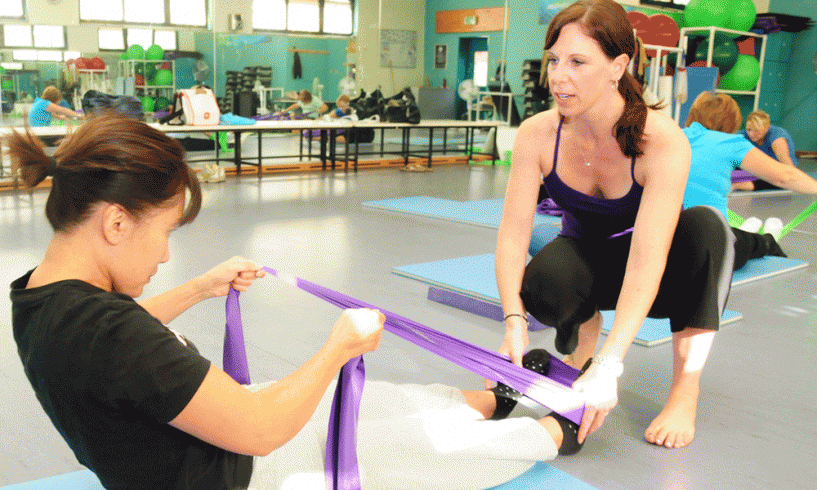As screening, early detection, and treatment options continue to improve, many patients with cancer have long survival rates after their cancer is eradicated. Of the 14.5 million cancer survivors in the United States, 64% are considered five-year survivors and 15% are 20-year survivors.
Although patients are living longer into survivorship, their comorbid burden is increasing. Studies have shown that cancer survivors have increased rates of chronic disease, including type-2 diabetes and cardiovascular disease (CVD); disability; and obesity compared to adults without cancer.
In their article in the May 2016 issue of the Oncology Nursing Forum, Grote, Almstedt, and Tarleton reported on a pilot exercise study designed to improve cardiometabolic health in cancer survivors and reduce their risk of developing diabetes and CVD.
Cardiometabolic Health in Cancer Survivors
Grote et al. explained that diabetes and CVD are clinically defined by poor cardiometabolic health, which is influenced by obesity and comorbid conditions such as metabolic syndrome, dyslipidemia, hypertension, and insulin resistance (see Figure 1). In fact, in cancer survivors, insulin resistance can also be a late effect of chemotherapy and radiation treatments. “Because metabolic syndrome strongly predisposes patients to diabetes and CVD, it is emerging as one of the greatest concerns of oncology practitioners,” Grote et al. said. Obesity and metabolic syndrome can also elevate inflammatory markers such as C-reactive protein (CRP), additionally contributing to poor cardiovascular health.
Studies have shown that a combination of moderate-intensity aerobic exercise and resistance training can reduce obesity and biomarkers associated with diabetes and CVD.
- Exercise can promote healthy cardiovascular, endocrine, and musculoskeletal systems.
- It may have positive effects on resting heart rate and blood pressure and improve the cardiorespiratory health of post-treatment cancer survivors.
- Regular participation in exercise may remediate late effects of treatment, such as cardiotoxicity and fatigue, a finding that is supported by ONS’s Putting Evidence Into Practice resources.
- Programs that prescribed exercise consistently noted significant improvements in body composition, biomarkers, or cardiovascular health.
Exercise Program’s Effect on Survivors’ Health
Patterns of improvement were seen in many of the assessments. At baseline, 4 of the 11 participants had prehypertension, 5 were overweight, and 3 were obese. Three were prediabetic, and one was at increased risk for prediabetes. One had a high-risk CRP level, and one had an elevated level.
After the intervention, total waist circumference decreased an average of 1.8 cm and three participants had more than a 3 cm reduction; decreases were associated with reduced CRP. Adherence to the intervention ranged from 24%–97%, with an average participation of 63%, Grote et al. reported. The more sessions a participant attended, the larger the decrease in waist circumference, the more likely he or she was to have decreases in insulin and leptin, and the greater the improvement in resting heart rate.
As a whole, participants reduced fat mass in their torso and upper body by 11%. None of the participants reported injuries during the exercise program. Grote et al. concluded that their relatively short intervention demonstrated enough improvement that repeating the study with a larger sample size and longer intervention would be worthwhile.
For more information on Grote et al.’s study, refer to the full Oncology Nursing Forum article.
Help Your Patients Get Moving
ONS’s Putting Evidence Into Practice resources and member experts recognize that physical activity is beneficial to patients in active treatment as well as survivors. The Get Up, Get Moving campaign was created to help support oncology nurses in implementing evidence-based change in practice and recommending physical activity to their patients with cancer.
Five-Minute In-Service is a monthly feature that offers readers a concise recap of full-length articles published in the Clinical Journal of Oncology Nursing or Oncology Nursing Forum (ONF). This edition summarizes “Cardiometabolic Health Among Cancer Survivors: A 13-Week Pilot Study of a Combined Aerobic and Resistance Training Program,” by Silvie Grote, MS, MA, RCEP, Hawley C. Almstedt, PhD, RD, and Heather P. Tarleton, PhD, MS, MPAP, which was featured in the May 2016 issue of ONF. Questions regarding the information presented in this Five-Minute In-Service should be directed to the ONF editor at ONFEditor@ons.org. Photocopying of this article for educational purposes and group discussion is permitted.






